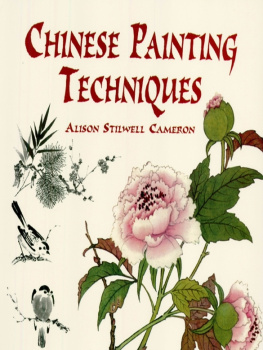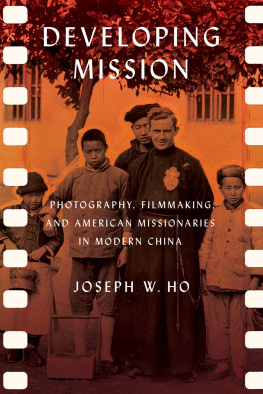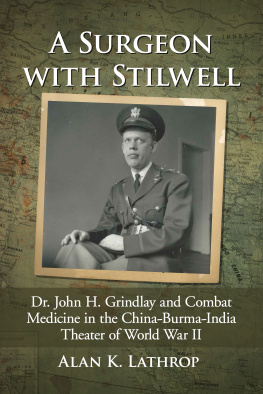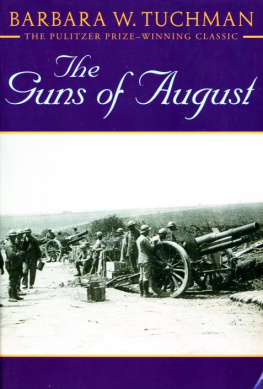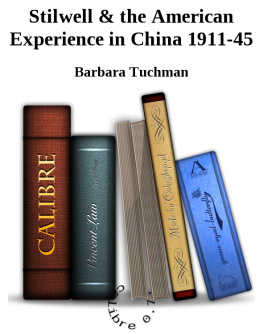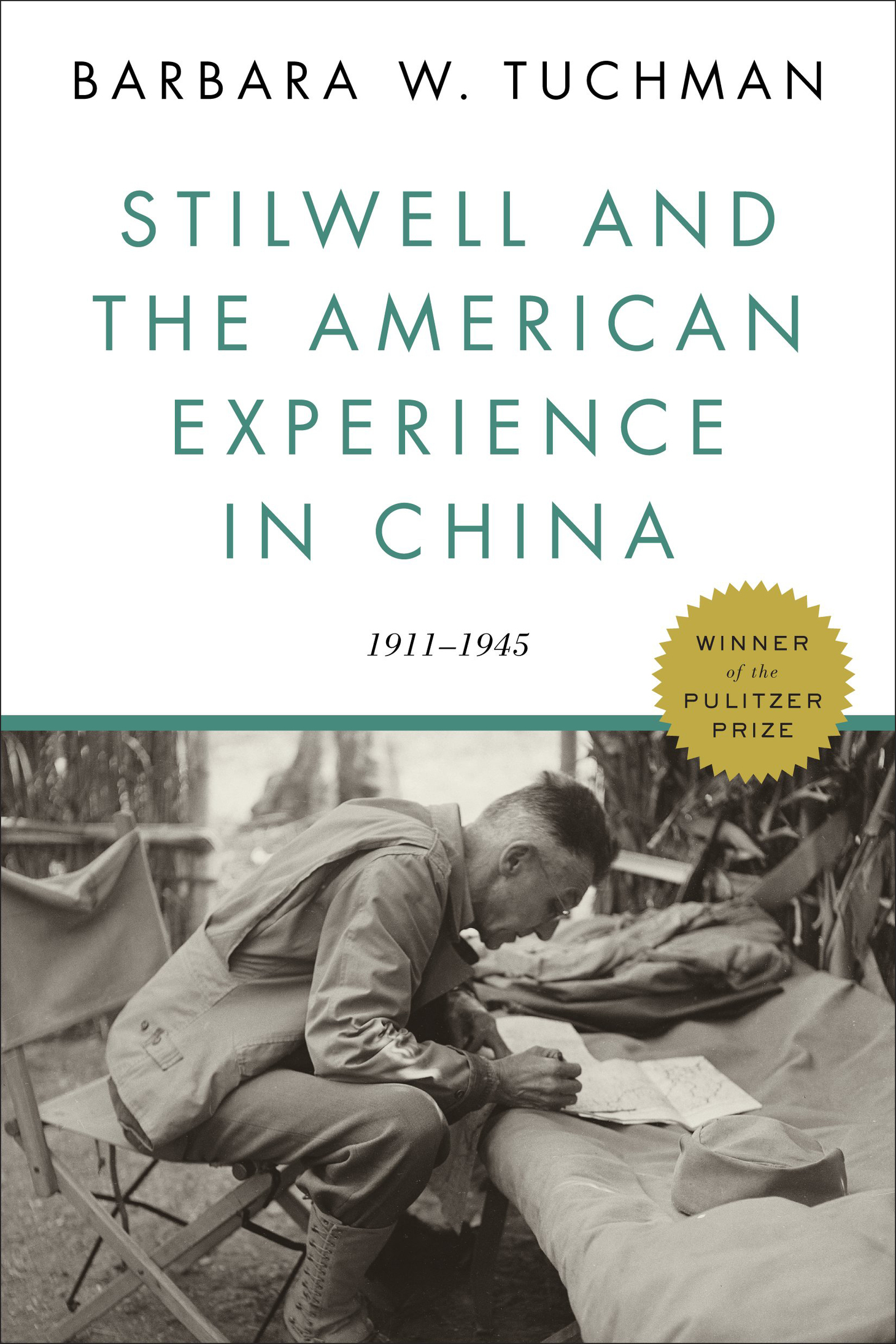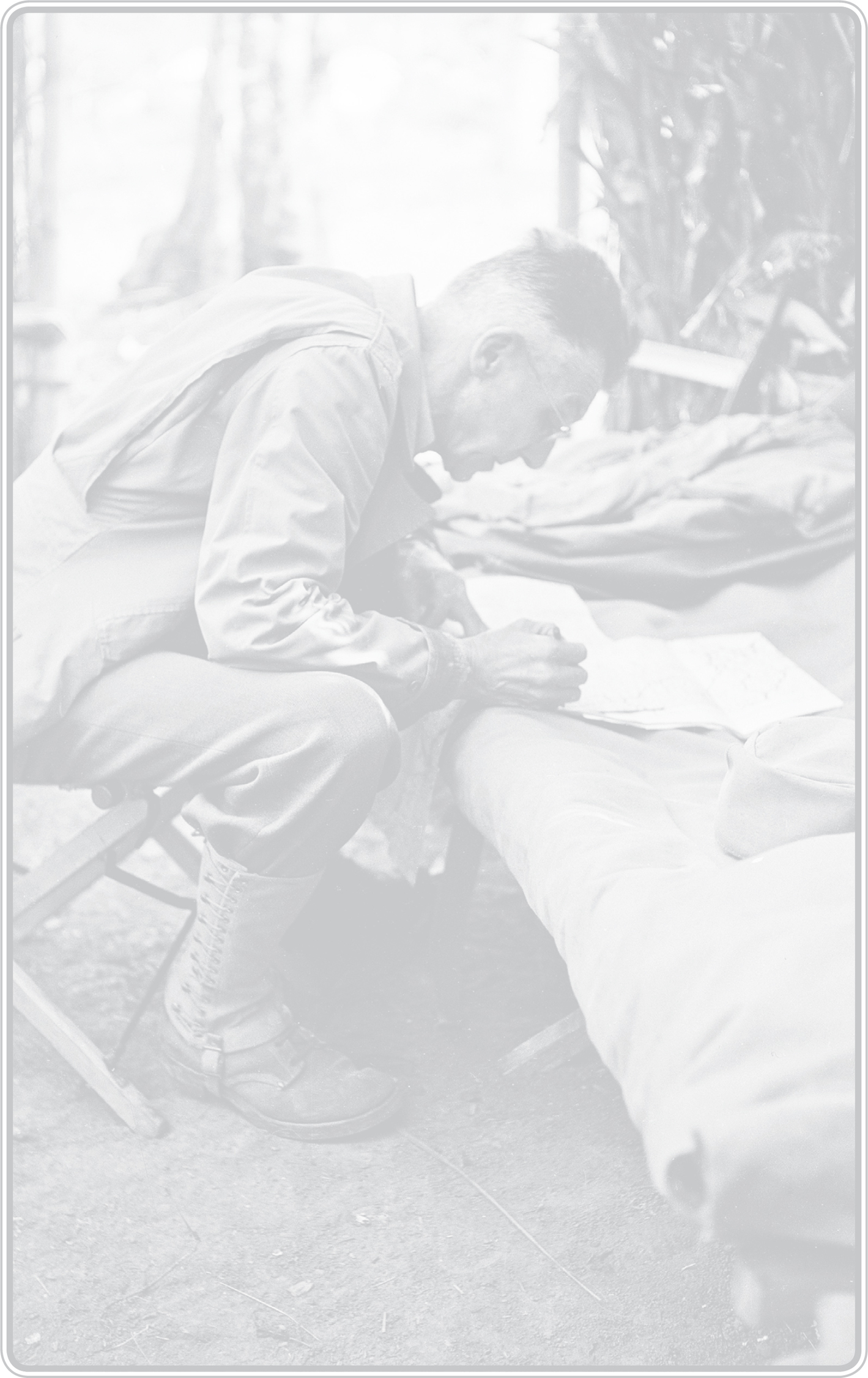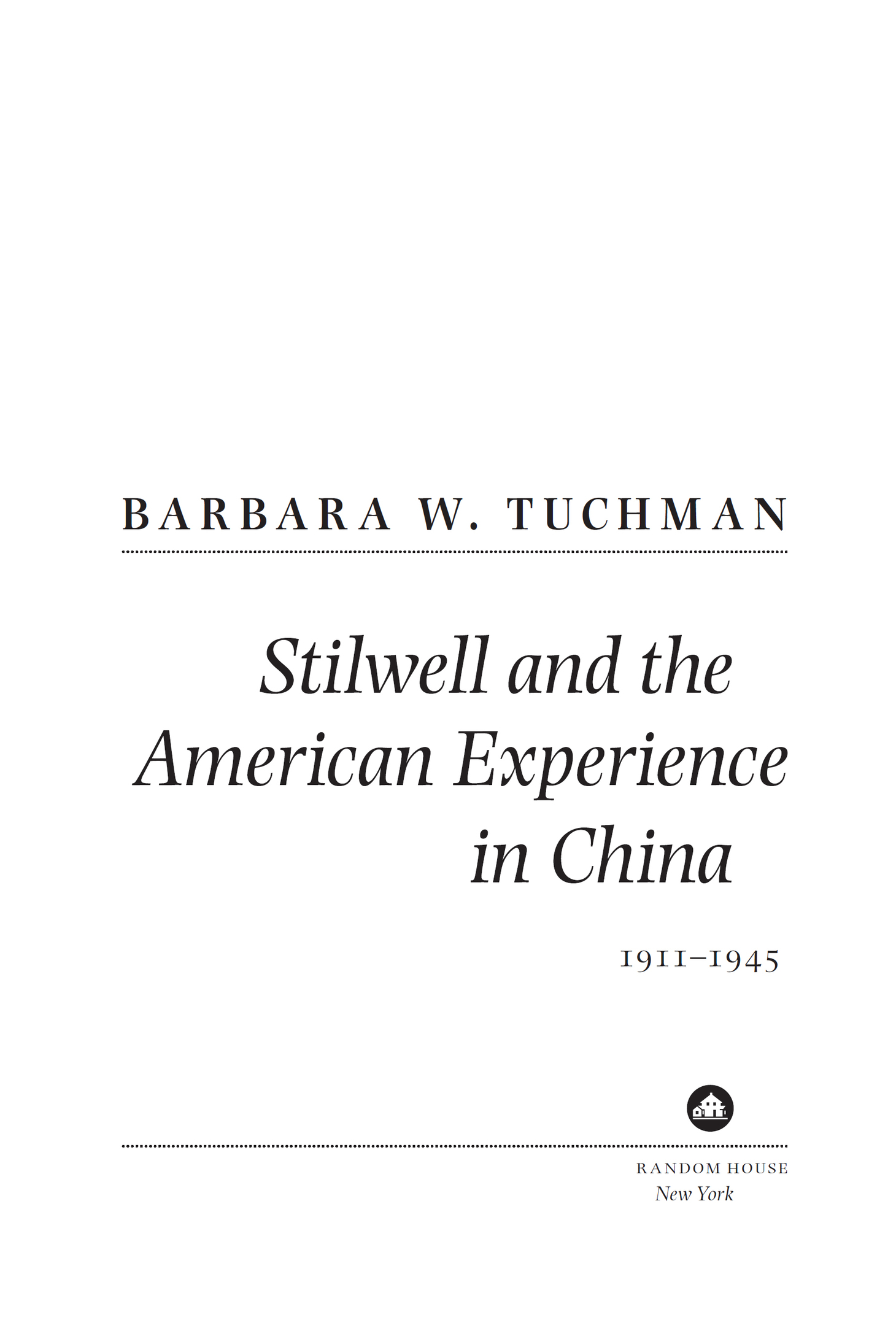Contents
Praise forStilwell and the American Experience in China, 19111945
WINNER 1972 PULITZER PRIZE
An admirably structured work that is excellent as narrative and fascinating as historyof major importance for the reappraisal, now become essential, of our China policyand of our Asian policy as a wholeOne sees striking parallels between the situation that existed in China during the Stilwell years and that in Southeast Asia today.
O. E DMUND C LUBB , Saturday Review
The most interesting and informative book on U.S.-China relations to appear since World War IIa brilliant, lucid and authentic account of a highly complicated subject that has too long lain buried under the political polemics of how China was lost.
A LLEN S. W HITING , The Nation
This book will be a major protagonist in the continuing controversy about China.
J OHN K. F AIRBANK , Director, East Asian Research Center, Harvard University
Barbara Tuchmans best bookso large in scope, so crammed with information, so clear in exposition, so assured in tone that one is tempted to say it is not a book but an education.
N AOMI B LIVEN , The New Yorker
An extraordinary book about a truly remarkable soldierreal and movingcertainly deserves reading by all Americans.
G ENERAL J AMES M. G AVIN
A characteristically brilliant book. Mrs. Tuchman combinesthe precision and grace of a fine writer with the courage to enter a confused and emotionally charged arena.
Los Angeles Times
A superb political studyof the intertwining of Asia and Americaa splendid book.
T HEODORE W HITE
The American public may well require some fast re-education on the subject of China.Thank goodness, then, for Barbara Tuchman.This book is a brilliant one-volume refresher course.
J AMES C. T HOMSON , J R ., Boston Sunday Herald Traveler
Copyright 1970, 1971 by Barbara W. Tuchman
All rights reserved.
Published in the United States by Random House, an imprint and division of Penguin Random House LLC, New York.
R ANDOM H OUSE and the H OUSE colophon are registered trademarks of Penguin Random House LLC.
Originally published by Macmillan, 1970.
ISBN9780812986204
Ebook ISBN9780802986211
Library of Congress Catalog Card Number: 77-135647
randomhousebooks.com
Book design by Simon M. Sullivan, adapted for ebook
Cover design: Gabrielle Bordwin
Cover photograph: William Vandivert/The LIFE Picture Collection/Getty Images
v4.1
a
Contents
Maps
Maps drawn by Brigadier General Frank Dorn, U.S.A. (Ret.)
Foreword
T HE THEME of this book is the relation of America to China, in a larger sense to Asia. The vehicle of the theme is the career of General Stilwell. Why Stilwell? Because he combined a career focused on China with background and character that were quintessentially American; because his connection with China spanned the period that shaped the present from the dramatic opening moment of 1911, year of the Revolution, to 1944, decisive year in the decline of the Nationalist Government; because his service in the intervening years was a prism of the timesas language officer from 1920 to 1923 in the time of the warlords, as officer of the 15th Infantry in Tientsin from 1926 to 1929 at the time of the rise to power of Chiang Kai-shek, as Military Attach from 1935 to 1939 at the time of Japanese invasion, lastly as theater commander in World War II; because in the final and critical years of this period he was the most important figure in the Sino-American relationship. Impatient, acid, impolitic, Vinegar Joe was not the ideal man for the role. But in knowledge of the language and country, friendship for the people, belief and persistence in his task, combined with official position and power, he personified the strongest endeavor and, as it was to prove, the tragic limits, of his countrys experience in Asia.
I am conscious of the hazards of venturing into the realm of Americas China policy, a subject that, following the defeat of Chiang Kai-shek by the Communists and the waste of an immense American effort, aroused one of the angriest and most damaging campaigns of vilification in recent public life. Nevertheless, since China is the ultimate reason for our involvement in Southeast Asia, the subject is worth the venture even though the ground is hot. It is only fair to add that this book, which ends in 1946, is concerned with origins that reach back beyond yesterday. You will hear a lot of talk, General Stilwell wrote for the graduating class of West Point in 1945, about how this or that generation messed things up and got us into war. What nonsense. All living generations are responsible for what we do and all dead ones as well.
I should like to add a word of explanation about General Stilwells diaries, which were naturally a major source for his biographer. I became thereby a trespasser since the diaries were intended for no eyes but his own. This little book, he explicitly warned on the flyleaf of the pocket diary for 1906, contains None of Your Damned Business! Believing in the right of privacy, I do not share the view that posterity has some sort of right to know the private life of a public figure if he wishes otherwise but in Stilwells case the needs of history had already prevailed over privacy. After the war it became important and necessary to let Stilwells voice speak for itself about the events of his controversial command. With the consent of his family his wartime diaries and letters for the period 194244 only were edited by the former correspondent in China, Theodore White, and published under the title The Stilwell Papers in 1948. The originals together with other wartime documents were also made available to Charles Romanus and Riley Sunderland, authors of the official Army history of the ChinaBurmaIndia theater, and were subsequently donated for public use to the Hoover Library in Stanford, California. This decision having been taken, it was logical to give a biographer access to the rest of the Stilwell archive covering his career prior to Pearl Harbor. Mrs. Stilwell made available to me the diaries, letters, documents, scrapbooks, family albums and other material in her possession, hitherto unpublished. These are described further in the Bibliography.
The Stilwell Papers was a sensation and a best seller and has been a source of invaluable fact and enlivening quotation for historians ever since. Yet in this case a mans own diaries, paradoxically, do not represent the real, or at any rate, the entire, man. Taken alone they give a one-sided view because Stilwell consciously used his diary to vent his bile, as he put it, of which he had a large natural endowment augmented by a peculiarly frustrating situation. Not content with diary entries, he rewrote and expanded his notes afterwards in larger notebooks or on loose sheets of paper, all of which he kept. Sometimes the process itself was recorded: Wrote and wrote. Terrible. Or, I am just scribbling to keep from biting the radiator. All this turmoil, which in other men would have been ephemeral, has become historical record. The acid, which in life was balanced by other qualities, has survived in undue proportion.


